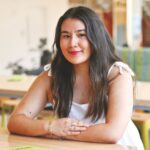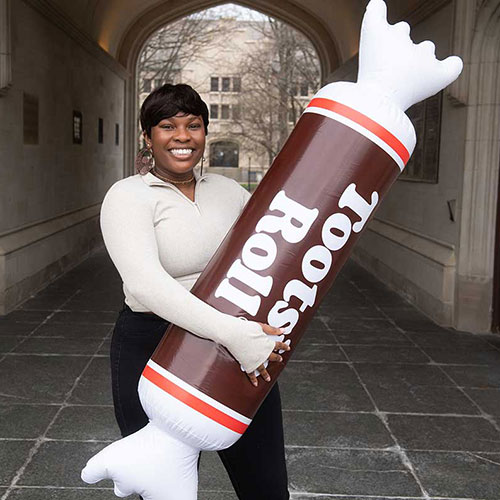
Independent Study analyzes the use of race-based appeals by Black politicians in hopes to gain Black votes

Stachal Harris ’21, a political science major at The College of Wooster, took a deep dive into how racial appeal is connected to how Black political candidates work to secure the Black vote for her Independent Study. With the experience of participating in an International Baccalaureate (IB) program, a high school curriculum that offers college courses and research opportunities, Harris knew she wanted to complete research on a larger scale. “I enjoyed the feeling of finishing my research and having something that was mine,” she said. “I wanted to experience that again or at a much larger level and I.S. seemed like the perfect project for me.” With a strong passion for centering research in race and ethnicity, Harris used inspiration from the 2020 presidential election to fuel her study. “I looked at race-based appeals, which is the way that Black politicians communicate their Blackness to the Black community, whether it’s verbally or through visual images,” Stachal said. “This helped me see if the different appeals affected the level of support they had for the fictional Black candidate.”
Major: Political science
I.S. title: Black Enough: An exploration of the strategic use of racial appeals by Black candidates to garner Black voters’ support
Mentor: Álvaro Corral, assistant professor of political science
“The inspiration for my I.S. came from the 2020 election where we had a lot of candidates from marginalized backgrounds. I mainly wondered if Black candidates are expected to prove and authenticate their Blackness in a way that can gain Black voter support.”
—Stachal Harris ’21
How would you sum up your I.S. project to someone outside your discipline?
“I conducted a study with all racial groups where they were presented with a fictional Black candidate and were given either a verbal or visual appeal, both a verbal and visual appeal, or just a race-neutral appeal. I hypothesized that racial appeals would help Black voters support a Black candidate if they saw they had connections to the Black community and my study proved this to be true. However, for white respondents, I was not seeing that same result. I noticed that the verbal appeal hurt the Black politician when being viewed by white respondents.”
What interests or excites you about the research you did?
“What interested me the most about this project was how the Black community defines Blackness. It is a topic that is ever-changing and especially when you are talking about Black political thought and Black political action. It is not just within political science, but it goes into psychology, sociology, and so many other disciplines. I brought a lot of different areas together for my study and figured out what that meant to me. My favorite part was writing about proximity to Black spaces, which is a way that Black people work to navigate how to define Blackness.”
How did your mentor guide you through the I.S. process?
“My mentor constantly challenged me to keep my focus because with issues of race and the subject matter, it is easy to go in so many directions. I found myself wanting to discuss so many sub-topics like gender, age, or featurism, but then my project would have shifted completely. I loved having an advisor with whom I could talk about my work. Research can get muddled when you’re trying to explain new theories, and he was there to help me through that.”
What are your next steps after graduation?
“I will be attending Heinz College of Information Systems & Public Policy at Carnegie Mellon to study information systems and policy and pursuing my master’s in public policy and management. I am hoping to look at health policy and how race, ethnicity, and equity issues coincide with those topics.”
Posted in Independent Study on May 18, 2021.
Related Posts
Related Areas of Study
Political Science
The study of power, with concentrations in U.S. politics, international relations, political theory and comparative politics.
Major Minor

